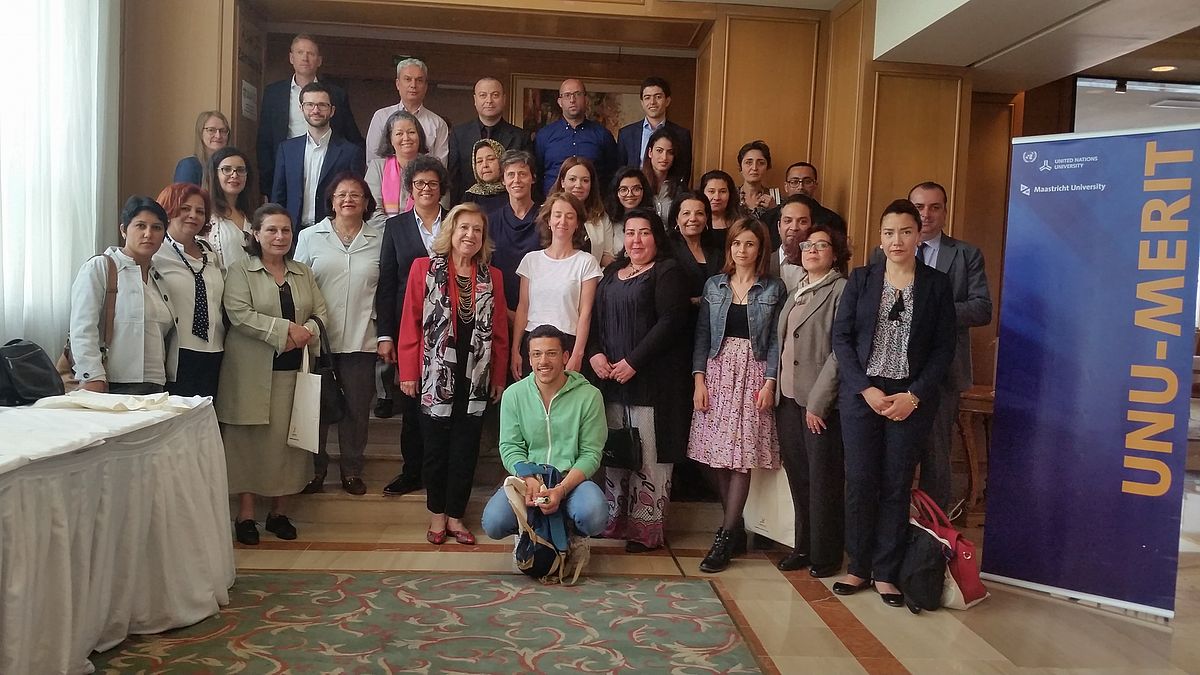Gender equality in Tunisia: weak economy weakens women's standing
Tunisia is regarded as a trailblazer when it comes to women's rights in the Islamic world. However, a weak economy exacerbates traditional gender role thinking, as a team of researchers from the University of Passau found in a study conducted for the International Labour Organization.
Professor Michael Grimm, who holds the Chair of Development Economics, and his team member Ann-Kristin Reitmann carried out a survey to determine to what extent Tunisian women have equal access to business and social life. 'There are deficits, especially in economic empowerment', said Professor Grimm.
The analysis was conducted on the basis of factors such as labour market participation, ownership of assets and control over the use of household income. It was found that Tunisian women face significantly greater challenges in business life than men. This situation was exacerbated by two coinciding factors: conservative views and poor economic growth.
'Tunisia must complete its structural transformation and gain a better positioning in the global economy in order to create jobs that are attractive for well-educated women.'
Prof. Dr. Michael Grimm
A high unemployment rate – as currently seen in Tunisia – further erodes women's standing. Professor Grimm's recommendation: 'Tunisia must complete its structural transformation and gain a better positioning in the global economy in order to create jobs that are attractive for well-educated women.'
The Tunisian Minister of Women, Family and Children, Naziha Laabidi, was in attendance when the researchers from Passau unveiled their findings of the study before some 50 high-ranking academics and politicians in Tunis. The director of the Centre for Arab Women for Training and Research, with whom the researchers jointly organised the presentation of the study findings, said the poor results in the area of economic empowerment had less to do with religion as such but with conservative values. Muslim women holding down jobs does not run counter to any religious principles.
Ann-Kristin Reitmann, Researcher at the Chair of Development Economics, co-ordinated the interviews in Tunisia in collaboration with the Tunisian institute BJKA. A total of 2,511 respondents participated in the survey, 1,320 of whom were women. She said: 'In all, the study shows that 95 percent of all women have empowerment deficits, particularly in business life. For men, this figure drops to 76 percent', explained Reitmann. Professor Grimm added: 'This is a global problem, which we have examined specifically in an Arab context. But it's important to remember that there is hardly a country in the world that achieves top scores when it comes to gender equality.' Germany, for instance, came in at 43rd place out of 144 countries examined in an international comparison of women's empowerment conducted by the World Economic Forum – trailing behind African countries such as Namibia, Rwanda and Burundi. In education, Germany achieved 98th place, followed immediately by Tunisia (99th).
Aspects of economic empowerment aside, the researchers from Passau examined domestic violence against women and the young generation's participation rate in the labour market. The findings are being used to draw up action recommendations for governmental decision-makers in Tunisia in co-operation with Tunisian experts.
The study at the University of Passau was financed by the Fund for Evaluation in Employment of the International Labour Organization (ILO). Other co-operation partners in the study were the universities of Tunis and Sfax and UNU-MERIT in Maastricht.
Percentage of men and women disempowered
The study showed that Tunisian women are somewhat equal to men in social life and in the area of education, sometimes even scoring better than men. Nonetheless, women tend to be hesitant when it comes to taking on jobs in male-dominated sectors. It was also shown that poor economic growth reinforces conservative gender roles: In urban areas, young men agreed by a slight majority (56 percent) with the statement that men should be given preferential treatment when jobs are scarce. The majority of young women rejected this notion. 'In this area we see a great divergence of opinion", Professor Grimm noted.





